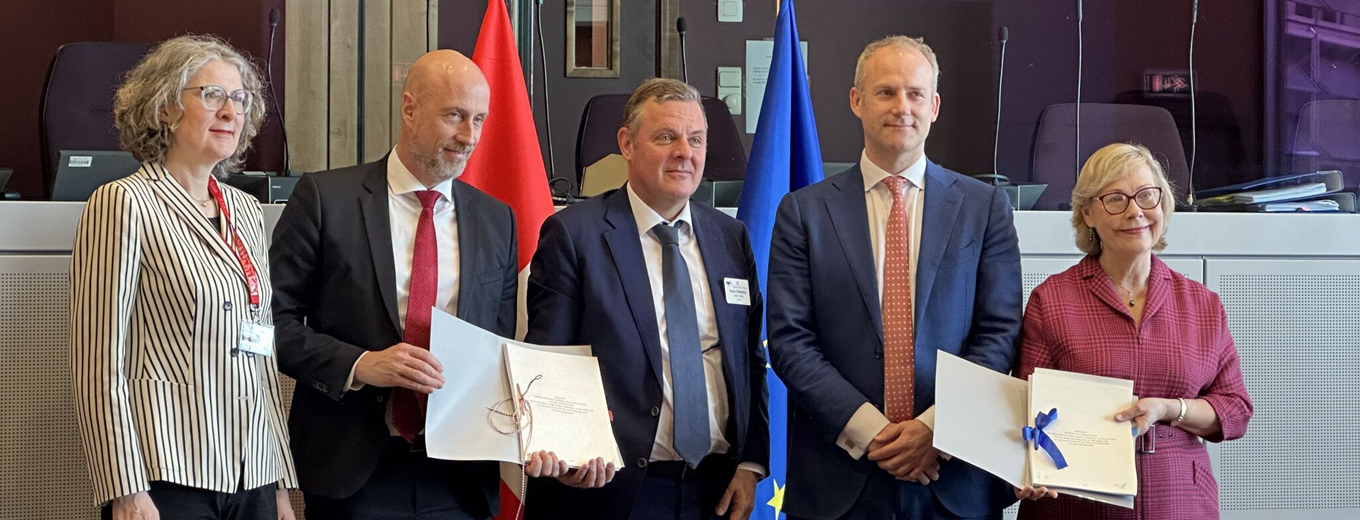The Commission’s assessment of the Horizon call topics on strategic technologies, such as AI and quantum, concluded that Swiss entities are fully eligible in 2025.
The full association of Switzerland to Horizon Europe and other Union programmes reached another milestone this month. On 2 April 2025, the two chief negotiators from the EU and Switzerland initialled the agreement on Switzerland’s participation in EU programmes (EUPA). This is an essential step in the process towards entry into force and ratification. While this will still take some time, due to a transitional arrangement, Swiss entities can already fully participate in Horizon Europe, as well as the Digital Europe and Euratom programmes from 1 January 2025 onwards. The ratification and association will then take effect retroactively from that same date. The agreement also foresees full participation in ITER from 2026 and in Erasmus+ from 2027.
There is more good news on Swiss participation in Horizon Europe: This month, the European Commission informed the Swiss government that they have completed their assessment on the participation conditions for call topics related to strategic technologies and decided that in the Horizon Europe work programmes 2025, Swiss entities have full access to all strategic technology areas, including AI, quantum, communication and network technologies. This decision and assessment was based on Article 22.5 of the Horizon Europe regulation.
While the rumour mill around the new European Competitiveness Fund and the tenth framework programme for research and innovation (FP10) is still very active, a final round of position papers on FP10 were published this month. The Hungarian and Finnish governments published their inputs on the next programme: Both governments call for a strong and independent FP10 with a stable budget and for further simplification. Hungary particularly advocates for the continuation of the EIT (which is under pressure) and the strengthening of the widening measures, however excellence is not mentioned in the paper. Finland, on the other hand, puts excellence at the centre and is against the continuation of widening support from the FP, but rather sees the cohesion programmes as playing that role. Both papers furthermore express support for opening FP10 to dual use projects. At the same time, the German government made eight focus papers available treating various aspects of FP10, from research infrastructures, on civil security, health, to innovation support and portfolio management. Finally, the European League of Institutes of the Arts (ELIA) published their recommendations for FP10, in which they put forward the strategic importance of the social sciences, humanities and the arts (SSHA) for economic growth, for democracy and for health, well-being and social cohesion (page 3 of the recommendations). The paper also strongly advocates for an excellence-based programme with more space for bottom-up proposals as they enable more interdisciplinarity that is necessary to address the complex global challenges.
In other (and more controversial) news, the EU and Egypt have successfully finalised the negotiations on Egypt joining Horizon Europe on 10 April 2025. The agreement is planned to be signed by November 2025 and until then a transitional arrangement enables the full participation in Horizon Europe already from this moment onwards. MEP Ehler criticised that more improvements on academic freedom are needed in Egypt for a participation in the programme as Egypt ranks very low on the academic freedom index.

